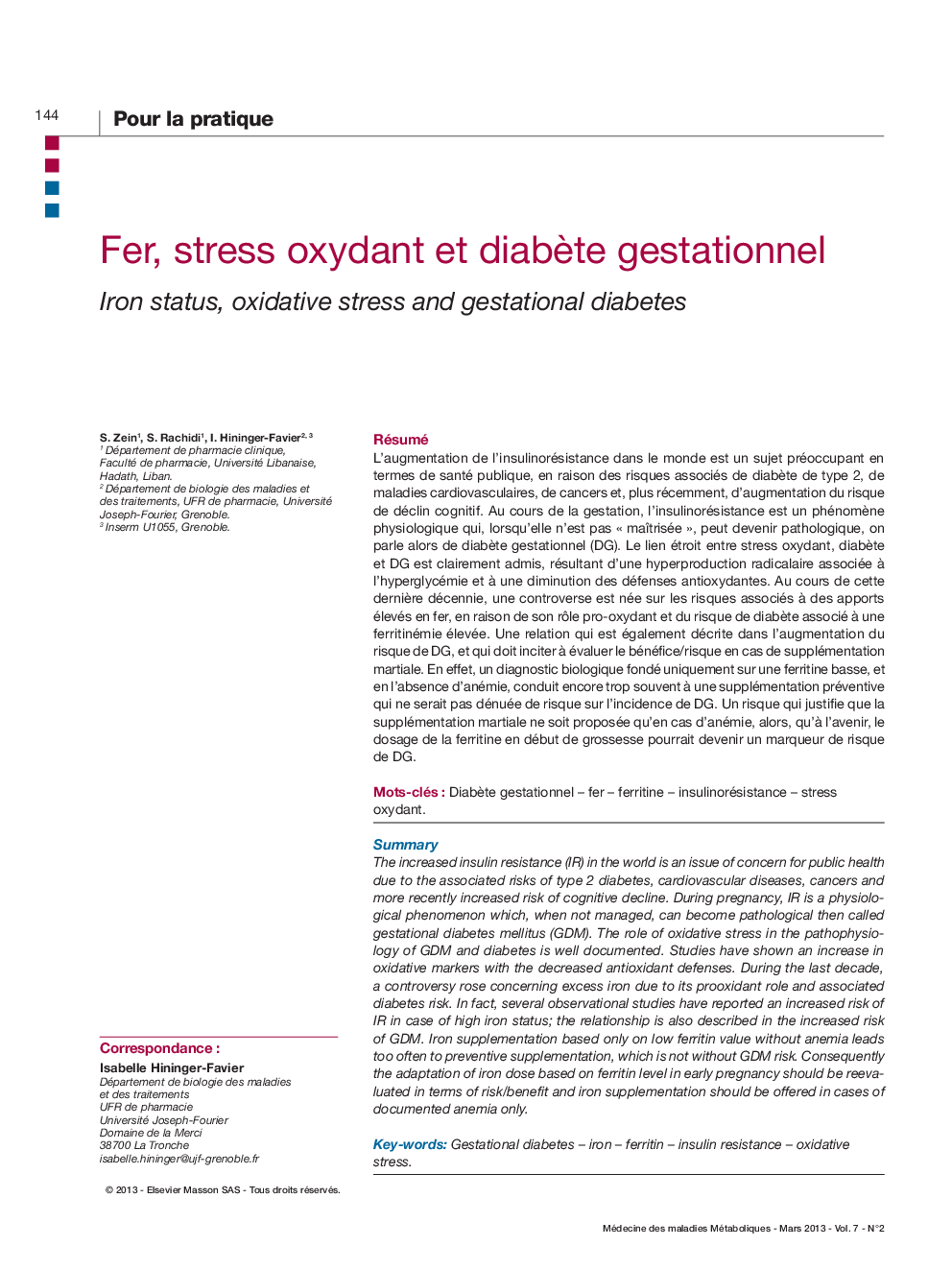| Article ID | Journal | Published Year | Pages | File Type |
|---|---|---|---|---|
| 3274856 | Médecine des Maladies Métaboliques | 2013 | 5 Pages |
Abstract
The increased insulin resistance (IR) in the world is an issue of concern for public health due to the associated risks of type 2 diabetes, cardiovascular diseases, cancers and more recently increased risk of cognitive decline. During pregnancy, IR is a physiological phenomenon which, when not managed, can become pathological then called gestational diabetes mellitus (GDM). The role of oxidative stress in the pathophysiology of GDM and diabetes is well documented. Studies have shown an increase in oxidative markers with the decreased antioxidant defenses. During the last decade, a controversy rose concerning excess iron due to its prooxidant role and associated diabetes risk. In fact, several observational studies have reported an increased risk of IR in case of high iron status; the relationship is also described in the increased risk of GDM. Iron supplementation based only on low ferritin value without anemia leads too often to preventive supplementation, which is not without GDM risk. Consequently the adaptation of iron dose based on ferritin level in early pregnancy should be reevaluated in terms of risk/benefit and iron supplementation should be offered in cases of documented anemia only.
Keywords
Related Topics
Health Sciences
Medicine and Dentistry
Endocrinology, Diabetes and Metabolism
Authors
S. Zein, S. Rachidi, I. Hininger-Favier,
